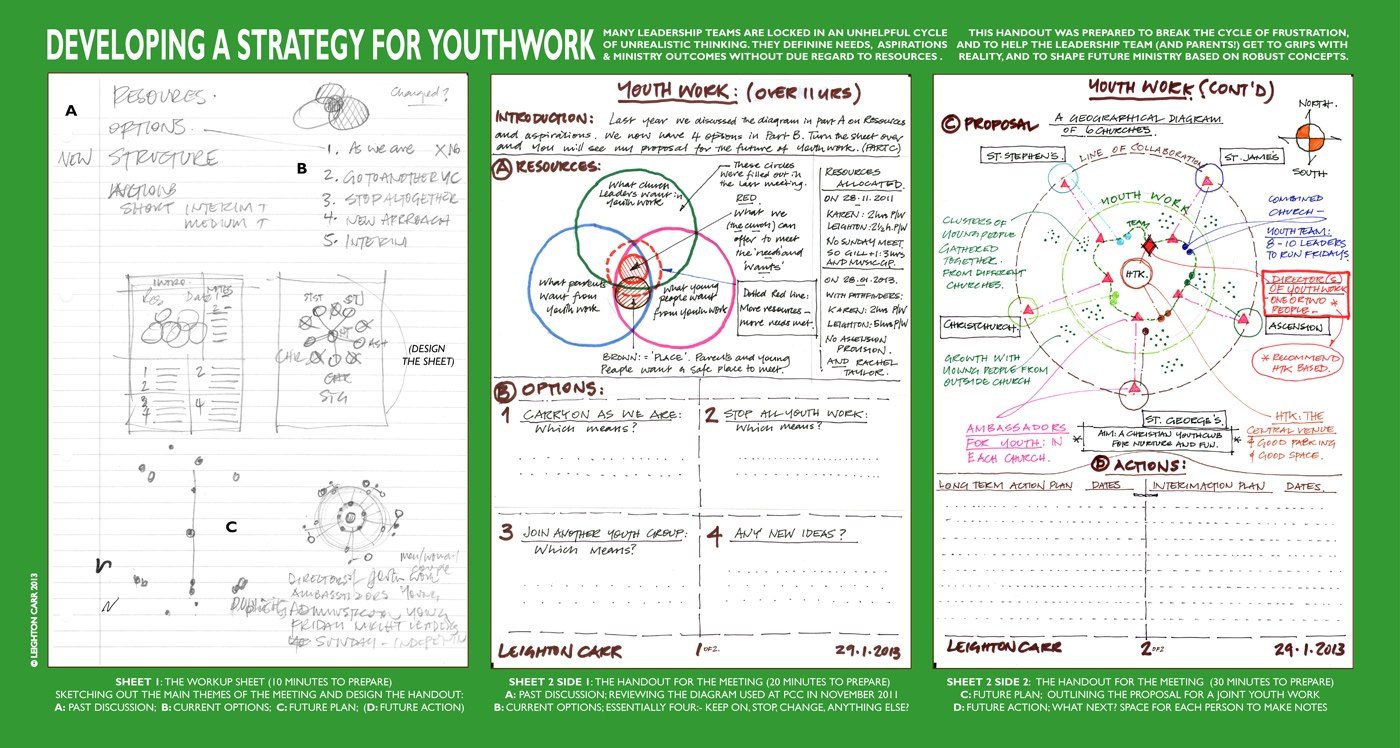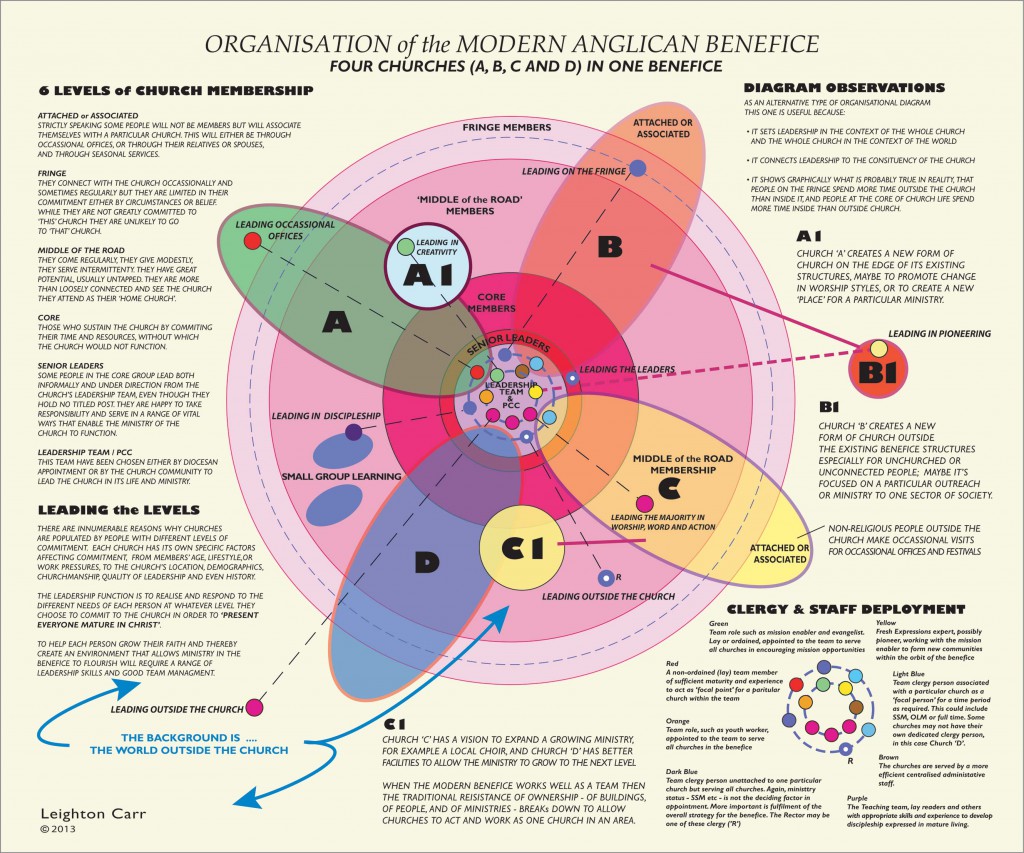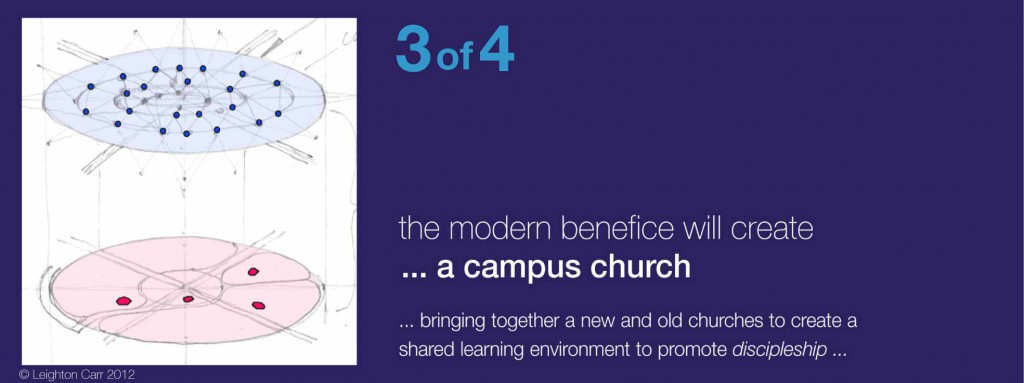After nearly four years of trying and not succeeding to establish a strong youth work we need a new direction.\r\n\r\nCollaboration across churches is the way forward, but it’s hard enough trying to work with a handful of leaders in one church let alone twenty or more leaders across six churches in four parishes. Recognising the need doesn’t always overcome parochial interests.\r\n\r\nWhat’s needed is a clear structure that limits uncertainty and allows, even compels, leaders to buy into it because it’s so possible and so obvious it would be churlish not to.\r\n\r\nThe key words to describe it will probably have to include simple, multi-level, accessible, empowering, flexible yet strong.\r\n\r\nThis is my offering. let’s see how it goes down tonight!\r\n\r\nTo zoom in further click here\r\n\r\n
Category: Church of England
blogs with some connection to the Church of England or Anglican life
Language problems in Leadership
The operation of much church leadership betrays a simplistic understanding of the inherent complexity of the interaction of the personal gifts of the leader. Nowhere is this more clear than in the use of language and the different effects that the same words from the same person can have on the same people.\r\n\r\nOn two occasions recently I noticed this problem and it gave me cause to stop and think about my own work.\r\n\r\nThe first was during a presentation on the nature of evangelism. Halfway through a perfectly reasonable explanation of some system or other I found myself wondering where the Gospel had gone? I understood the words being said but I didn’t see the connection between Jesus and his world. It’s not that the presentation was entirely wrong. The words were right and clear but at the same time wrong and obscure. I realised that the presentation helped me think as a leader but not as an evangelist or as a pastor.\r\n\r\nBeing alerted to my own discomfort in this situation I then came across an even more stark example in a private conversation about a sensitive topic. The other person used extreme and dramatic language to sustain their argument, to the point where my naturally middle-of-the-road preference in these situations was misread as careless and lukewarm.\r\n\r\nWhen challenged over this extreme use of language the other person argued that it was important to use hyperbole to motivate a congregation to action. It was about leadership.\r\n\r\nAnd there we were. Stuck on a fundamental difference over holistic ministry.\r\n\r\nIn most churches the ‘leader’ is actually also (and better called) the ‘pastor/teacher’, and hopefully this person ‘does the work of an evangelist’ as Paul encouraged Timothy to do. So that’s four roles in one person as a minimum.\r\n\r\nSo how does hyperbole used in the leader role work in other roles of teacher and pastor?\r\n\r\nBadly!\r\n\r\nThe teacher who uses extreme language to teach teaches without balance, and doesn’t help the process of learning, which after all is what teaching is about (most teachers in church wrongly measure their own quality by how well they perform their function rather than how well people receive and learn, but that’s a whole other subject).\r\n\r\nInstead, the teacher who uses extreme language teaches others to do the same – and there we have cults and sects of all sorts in the making.\r\n\r\nThe pastor who uses extreme language looses credibility as someone who is able to deeply listen and weigh up personal issues.\r\n\r\nInstead, the pastor who uses extreme language teaches his congregation that the language of extremes is the context in which personal relationships are enacted.\r\n\r\nSame person. Same words. Same hearers. Different outcomes.\r\n\r\nAnd it’s inevitable if the ‘Leader’ doesn’t think carefully about how one role impacts on another.\r\n\r\nAs ever, Eugene Peterson puts it much more eloquently:\r\n\r\n”descriptive language is about … and motivational language is for getting people to do things they wouldn’t on their own initiative… but personal language, to express, converse … is the language to and with; love is offered and received, ideas are developed, feelings are articulated, silences are honoured.\r\n
[This is] the language of children, as lovers, in prayer, as poets. And it is conspicuously absent when we are running a church.”
Ambitious Ministry: Oxymoron?
Is it right to be ambitious in ministry?\r\n\r\nA pertinent question in this season of job hunting, and not a straightforward one in my experience.\r\n\r\nThe Latin word behind our word ambition means to seek votes, office, popularity or fame. It has the idea of campaigning for support.\r\n\r\nBishop Stephen Neill put it this way when talking to ordinands who were about to be ordained:\r\n\r\n“I am inclined to think that ambition in any ordinary sense of the term is nearly always sinful in ordinary men. I am certain that in the Christian it is always sinful, and that it is most inexcusable of all in the ordained minister”\r\n\r\nThat should put job applications (and rejections) into perspective!
St Augustine’s Islington
It’s a basic premise based on thirty years of problem solving:\r\n\r\nThe Quality of Research determines the Quality of Solutions\r\n\r\nThe wider the frame of reference the broader the perspective available.\r\nThe deeper the subject is mined the richer the solutions become.\r\n\r\nThe opposite is true.\r\n\r\nInadequate Research leads to Inadequate Solutions\r\n\r\nThis is nearly always true of parish ministry. Without a sound understanding of (sometimes arcane) details parish strategies are almost always based on some incomplete premise or another borrowed from a book or a course or from the church’s history or practice or another church.\r\n\r\nWhat sort of research? How could it be used?\r\n\r\nToday I completed a brief overview of St Augustine’s parish in Islington, London. A typical London inner city parish, geographically small, few distinguishing features. Good church building. Committed congregation. The question is, what’s next?\r\n\r\nThe data tells us that nearly 4,000 people in the parish call themselves Christian; and roughly 3,000 people are technically Financially Vulnerable; and nearly 3,000 people are on tax credits. Which is half the working age population. And these may not all be the same people.\r\n\r\nAnd all the reverse details are true too. Half the population are not on benefits, are not financially vulnerable, and do not call themselves Christian.\r\n\r\nAnd there are about 600 pensioners and 1,200 children.\r\n\r\nI’m not sure what that means, but I’m sure it’s better to know than not to know.\r\n\r\nClick here to see the complete details and zoom in, or just look at the map …\r\n
Lead everyone or lead your favourite few?
One leadership question arising from the Organisation of the Modern Anglican Benefice is this:\r\n
“If you are a church leader, who are you leading?”
\r\nIt is easy to focus leadership efforts in church on a small group of core committed people.\r\n
- \r\n
- A group who ‘get it’.
- A group who will move forward willingly, not kicking and screaming.
\r\n
\r\n
\r\nIt is hard to lead across the levels of membership.\r\n
- \r\n
- A wide spectrum of people, from the uncommitted to the core member.
- A group who have different needs pastorally, theologically, socially.
\r\n
\r\n
\r\nIf the choice is made to lead only a few in the church, and not the whole church, then this leadership can be called many things.\r\n
- \r\n
- It can be called leading enthusiastic young adults.
- It can be called leading those who want to be led.
\r\n
\r\n
\r\nBut if most of the church aren’t being led there’s one thing it can’t be called:\r\n\r\n… it can’t be called church leadership.
Reorganisation of the Modern Anglican Benefice
It would be reasonable to assume that most Church of England clergy are uncomfortable with the idea of simply transferring business models and methods into the church.\r\n\r\nAs the church wrestles with questions of long-term sustainability some new thinking about structures has to be carried out, and it is not enough to simply adopt a streamlined management plan from a profit-motivated organisation and hope that the Anglican church can adapt. For start, most corporate internal organisation charts don’t include the client; they focus instead only on the Team, which can be controlled, not the public, (and for public read ‘Ordinary Church Member’).\r\n\r\nIt was reflecting on this problem which led to the doodle which led to the diagram below. It proposes an alternative organisational diagram for the modern Church of England Benefice.\r\n\r\nFor a larger version for zooming in see here.\r\n\r\nOn the same subject see Models of the Successful Modern Church of England Benefice\r\n
Hijacked Epiphany
While shopping early today (yes, shopping on a Sunday) there were Easter eggs on sale alongside the Christmas leftovers in the Asda clearout.\r\n\r\nIt’s January 6th\r\n\r\n- the twelfth day of Christmas\r\n- the day Anglicans celebrate Epiphany\r\n- and there are Easter eggs on sale.\r\n\r\nIn fact, before Christmas there were Easter eggs on sale next to Christmas gifts at the local Shell petrol station. Stocking fillers?\r\n\r\nIn some ways it’s to be expected. It’s what happens when a secular society gets hold of a Christian festival without the patience and understanding to see it through.\r\n\r\nBut it’s not only a feature of a secular society. For many churches the rush in and out of festivals happens at an equally startling pace.\r\n
- \r\n
- It’s as though churches have caught the impatience around them rather than expressing their own mature patience to see the season out.
- It’s as though we need to be always turning to something new or, God forbid, the congregation might get bored.
\r\n
\r\n
\r\nIt is written into the seasons of the church, especially in Church of England liturgy, that time should move slowly, which admittedly is hard in a fast world.\r\n\r\nSo how about using these words when planning our way out of our festivals:\r\n
Dwell. Wait. Watch. Feel. Hear.
\r\n(PS: Maybe it can go too far? I also heard today of a man who celebrates Christmas until 2nd February (Candlemas) by leaving Christmas decorations up outside his house. 40 days?)
The successful modern Church of England benefice 4 – Planting
The successful modern Church of England benefice is an organic, networked and campus church, created for growth and witness. It is the logical outworking of this new Anglican focus that the successful benefice will find opportunities to share its resources and experience and expertise with other churches and in other places. It will become a Planting church. At times this will mean offering help to Anglican and other churches experiencing difficulties, and at other times it will mean starting new ventures of different shapes and styles to meet particular needs and opportunities.\r\n\r\nThis is 4 of 4: to see the whole poster go here\r\n\r\nOr see each individual post here: 1-Organic 2-Networked 3-Campus\r\n\r\n
The successful modern Church of England benefice 3 – Campus
The successful modern benefice in the Church of England will need to become a Campus. This means it will draw together resources for teaching, mentoring, coaching and training, for the purpose of helping Christians deepen their discipleship and witness. Lay ministers will need to work in a more flexible way, working in teams, with each person working to their strength, be it research, writing, preaching, coaching. The Campus church will also attract external resources from outside the Anglican church – theologians and educators – as well as offer resources to all local colleges and schools (not only Church of England schools!) to build up the life of society as a whole.\r\n\r\nThis is 3 of 4: see the whole poster go here\r\n\r\nOr see each individual post here: 1-Organic 2-Networked 4-Planting\r\n
Promotion, Preferment, Sacrifice
Its job hunting time for curates all over the country, and on Friday mornings new jobs are advertised in the Church Times (today’s are in Ireland, Scotland and Brittany – tempting – and a school in Ashford). Depending on the rules of their particular diocese curates in their third or fourth year have to move on and many are keen to go, ready to spread their wings and take more responsibility.\r\n\r\nAnd yet.\r\n\r\nTraining for ministry is not just about ‘learning the ropes’, as it’s inelegantly called. Occasional offices. Running a PCC meeting. Preaching. Not ruining worship services.\r\n\r\nSkills aren’t enough.\r\n\r\nAnd that is because – if leading in ministry is not empowered by a tangible, dynamic, and forceful spiritual authority then it will waste the good time of congregations and fail a world that is, according to Jesus, waiting for someone to step up (Matthew 9/Luke 10).\r\n\r\nThe alternative to a ministry of Spirit Empowered Spiritual Authority is a well practised ministry that is ineffective in the spiritual world, and consequently unfruitful in the temporal one too.\r\n\r\nSo how is spiritual authority gained?\r\n\r\nUnfortunately this aspect of the job cannot be taught by Diocesan training staff or learned easily in theological colleges.\r\nIt doesn’t come with the job, and it isn’t conferred by a hopeful PCC.\r\nIt doesn’t come automatically with the Bishop’s license to minister, and it isn’t handed out with a promotion.\r\n\r\nNo, spiritual authority in leadership comes from the public and private practice of surrender and sacrifice. And as Jesus modelled in the Gospels, it is often discovered in the desert.\r\n\r\nWhich means that in trying to make sense of some of our hardest years of leadership behind or ahead we should take encouragement from the following quote about the road to spiritual authority in leadership:\r\n\r\nIt is not won by promotion, but by many prayers and tears. It is attained by confession of sin, and much heartsearching and humbling before God; by self surrender, a courageous sacrifice of every idol, a bold uncomplaining embrace of the cross, and by an eternal, unfaltering looking unto Jesus crucified. It is not gained by seeking great things for ourselves, but like Paul, by counting those things that are gain to us as loss for Christ. This is a great price, but it must be paid by the leader who would not be merely a nominal but a real spiritual leader of men, a leader whose power is recognised and felt in heaven, on earth, and in hell.\r\n\r\nSamuel Logan Brengle



